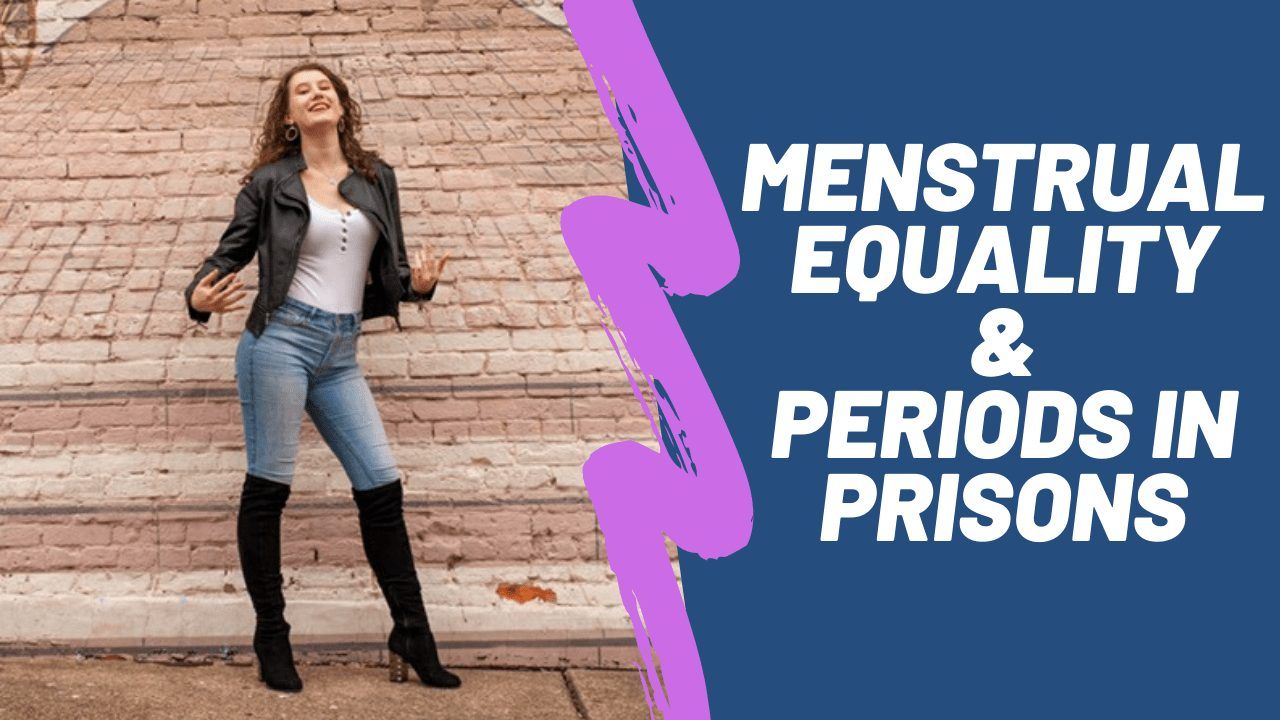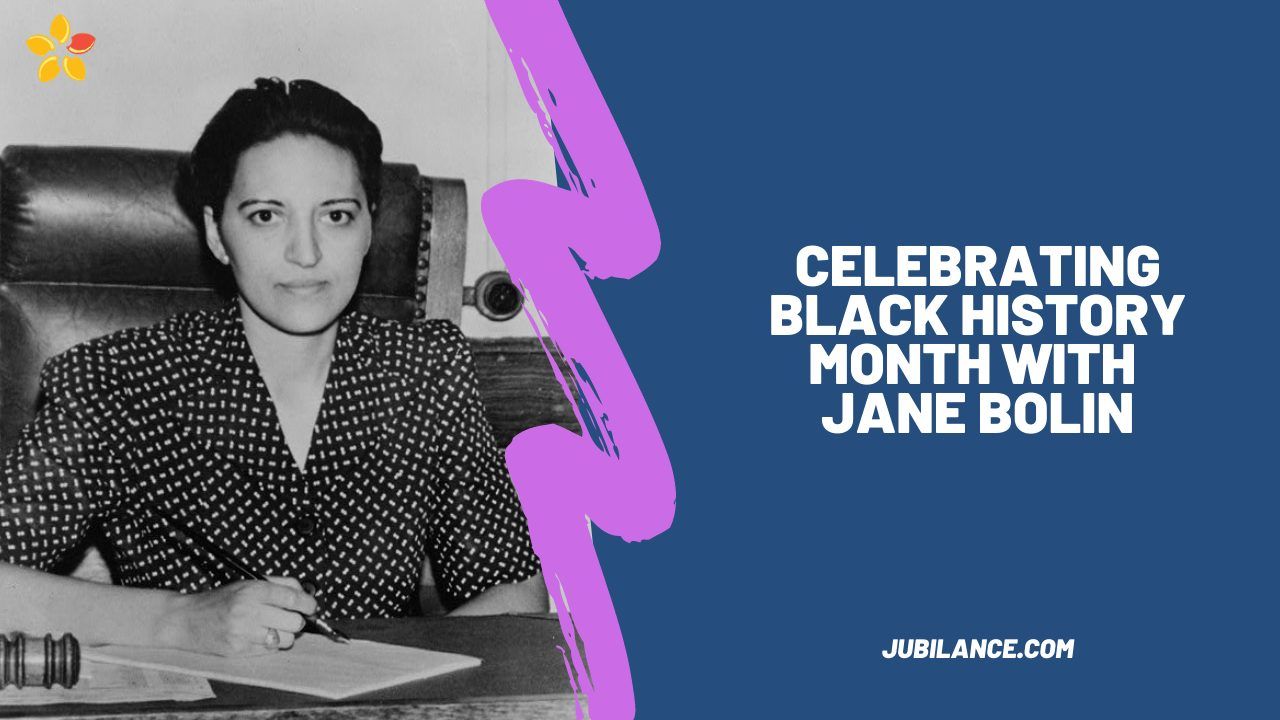Charlotte is a current student at George Mason University studying Forensic Psychology and very active in the end-the-period movement. She’s a legislative intern on Capitol Hill for Congresswoman Sylvia Garcia, who’s actually a co-sponsor on the Menstrual Equality for All Act, we will be asking Charlotte about later.
Charlotte has studied mental health and how it functions in the prison systems. And will be volunteering at the Fairfax Detention Center. She’s interested in seeing how federal and state mental health policy will be reformed. This amazing girl does it all. She’s also part of the GMU Democrats, the Fairfax Democrats, and the GMU Pride Alliance.
Watch her interview here:
Listen to her interview here:
Alice: Hi, everyone. I’m Alice, the Social Media Manager for Jubilance and today I’m talking with Charlotte Coyle.
Charlotte is a current student at George Mason University studying Forensic Psychology and very active in the end-the-period movement. She’s a legislative intern on Capitol Hill for Congresswoman Sylvia Garcia, who’s actually a co-sponsor on the Menstrual Equality for All Act, we will be asking Charlotte about later.
Charlotte has studied mental health and how it functions in the prison systems. And will be volunteering at the Fairfax Detention Center. She’s interested in seeing how federal and state mental health policy will be reformed. This amazing girl does it all. She’s also part of the GMU Democrats, the Fairfax Democrats, and the GMU Pride Alliance. We’re so happy to get to talk to her today. So, welcome, Charlotte. Thank you for joining us.
Charlotte: Hey.
Alice: Yeah. So we’re just going to start off with some fun questions. What is your favorite food?
Charlotte: Anything Italian, definitely. I love pasta. My specialty puttanesca. It’s like, this sauce– my mom used to make it for me all the time when I was little. It has like olives, capers, garlic, onions in it. Super good. Definitely my favorite by far.
Alice: Sounds so good. Do you have a favorite restaurant in the city in DC?
Charlotte: It is not a restaurant per se. I honestly go to more coffee shops than I do a restaurant.
Alice: Excellent, cool.
Charlotte: It’s kind of like my side hobby. I try to find all the best, like local coffee shops.
Alice: Cool.
Charlotte: Probably my favorite in this area, and like Fairfax, is Caboose Commons.
Alice: Cool.
Charlotte: It’s this old warehouse, like, a three-story warehouse. They turned into like a brewery/coffee house and they also have really good food. So it’s a great place to study because you can get like a coffee or a beer and like a sandwich. It’s really good.
Alice: Cool. That sounds awesome. Caboose Commons. So, everyone in Fairfax should go.
Charlotte: Yes, check it out.
Alice: What are you watching on TV right now?
Charlotte: I kind of go back and forth between, you know, like comedies or like detective serial killer type of stuff.
Alice: Completely different.
Charlotte: Yeah. Completely different. But I watch the show differently. Recently on Netflix called Broadchurch. It’s like a great detective show.
Alice: It’s so good.
Charlotte: Have you seen it?
Alice: Yes.
Charlotte: Yes. I love it. Yeah. I watched that recently. So good, and like Season 3 of Atypical just came out. Don’t know if you’ve seen Atypical.
Alice: I don’t know that one.
Charlotte: It’s about like a guy in college with autism and it’s a comedy, but it’s also like about him, like, getting through, like, college and life and everything and it’s really good. So, I’m, like, super excited that the third season just came out.
Alice: Oh, that’s awesome. What’s your must-have in your purse?
Charlotte: If you could tell, red lipstick. That’s like my essential item I have to have. I have like several different shades of red lipstick actually.
Alice: Oh, that’s awesome. Okay. What’s your favorite book you’re reading right now?
Charlotte: Oh, right now, let’s see. I just got a James Patterson novel, like, first edition, James Patterson novel, because I love, like, mystery kind of stuff. And it’s called Step on The Crack. And it’s in DC, but it’s about, like, powerful politicians. And like, things going on behind the scenes. And it’s like a thriller kind of. But it’s great.
Alice: Oh wow. That sounds fun and so fun to read about it when you’re like living in that city.
Charlotte: Yeah. Like a different take.
Alice: Oh, that’s cool. Yeah. Can you talk about moving to DC? You said you grew up in Houston and then you went to school and then transferred to GMU. Can you talk a little bit about that journey?
Charlotte: Yeah. So, actually, I grew up in Louisiana. Actually, I was born in Baton Rouge. I moved to Houston during high school. But yeah. So I went to college in Houston for my first two years at Lone Star. And I ended up transferring up here, kind of, just for a lot of different reasons, mainly because of their Forensic Psychology program at George Mason. It’s really good and it’s kind of a unique field. So like, it’s hard to find a school that, like, offers courses in that. So that was cool that they had that. And then also just the proximity to DC was important for me because I’ve always been really involved in politics. And I did a lot of activist things in Houston. But there’s so much here and interning in DC as well as a great opportunity. So, that’s what brought me up here.
Alice: That’s awesome. And what made you want to study Forensic Psychology?
Charlotte: So, I mean, I’ve always been interested in the criminal justice system and how it works or doesn’t work a lot of the time. I used to want to go into criminal law actually, but then as I got more into psychology, I’ve done a lot of research into, like, the mental health system within the criminal justice system and how lacking it is really. I mean, it’s really an issue because there’s not a lot of funding for it. Even within the community in general, but especially within the criminal justice system.
Both the state-federal and local governments do not give enough funding to be able to take care of people. And what happens a lot of the time, sadly, is that especially like in Houston, for example, the Harris County Jail has become the largest mental health facility in Texas, because a lot of the hospitals and facilities in the communities have had to close down or significantly reduce their size due to the lack of funding. They just can’t keep it up. They can’t hire enough people to staff them. And it’s very sad because people will be in and out of jail all the time for nonviolent offenses, things like trespassing or stealing, especially with drug substance abuse-related problems. And those often overlap with mental illnesses. So you have people that are in need of several different forms of treatment, just sitting in jail, not charged with anything. But they don’t want to just send them back out on the street. But then they call up a mental health hospital and they’re like, “Okay, well, it’s going to be average of a hundred and sixty days of wait to get them in here.” You know, that’s the average time.
Alice: A hundred and sixty days wait?
Charlotte: Yeah, that’s the average time in Texas. And so they’re sitting in jail for a hundred and sixty plus days, not charged with anything and not getting the treatment they need.
Alice: That’s insane.
Charlotte: Yeah. And so, finding out those kinds of things through, like, research and talking to people, it was like, “Wow. We have a lot of work to do.” So that’s what made me want to get into forensic psychology.
Alice: Wow. And what do you want to do with that after school? I know there are, like, different routes you could go down in, like, the politics arena or like really working with inmates themselves. Do you have, like, an idea about that yet? You’ve got all the time in the world, though.
Charlotte: Yeah, I kind of want to do, I want to conduct a lot more research into how to come up with safe and effective treatments for mental disorders, because that’s kind of a major problem as well as, I mean, people having to go through several different kinds of medications that often make them worse than better when trying to figure out how to treat their mental disorder and different types of therapies.
And so that’s one thing I want to do, is really focus on the research on how to come up with more effective treatments and then going into the criminal justice system. I really want to work, in an actual, like, detention facilities and everything, work with inmates in the courts and really tried to individually help people get the resources they need to be able to thrive and have access to opportunities that are often stripped away from people that are involved in criminal justice system or have, you know, some sort of criminal background.
Alice: Wow, that’s amazing. I really didn’t know anything about that. I have heard that it is hard to get feminine products into prisons and have access for them for women.
Charlotte: Yes. Yes. So, I mean, really, the criminal justice system was built with men in mind as things often are. So, yes, I mean, really, you know, women were not really expected to be incarcerated as much when the criminal justice system was being designed. Of course, now we have, you know, increasing numbers every year of women being incarcerated. And they honestly just really don’t know how to deal with it. And, you know, one of the major things is, you know, access to these hygiene products as well as pregnant women, like, I’m sure you heard about the issues of, like, shackling pregnant women, all those different things and miscarriages. Yeah, so there is a lot of issues.
Yeah. Receiving like hygiene products every month. You know, that’s something that’s a recurring thing we need every month. And, you know, it’s either rationed to where they don’t get enough. Like they might get like three pads a month or something.
Alice: What?
Charlotte: Yeah. Sometimes. Yes. Yeah. And then like or they’ll have to go buy them from a commissary and they can be four or five dollars for one tampon or one pad. And you don’t have an income unless someone’s sending you money, you don’t really have an income. So, then you can’t afford it and you might just have to go without it. And it’s really sad because they often don’t give them, you know, an extra change of clothes if they bleed through their clothes or like, you’re just in those. They don’t have extra time to shower outside of your allotted time. And then if you’ve bled through your clothes, they also won’t let you see any visitors. So, if your visitors come during that time, you just can’t see them. And it’s, I mean, it’s awful. It’s horrible. So, yeah, that’s definitely a major issue within like the Menstrual Movement.
Alice: That’s insane. Can you talk about how you got involved with the Menstrual Movement?
Charlotte: Yeah. So, I mean, the period movement I kind of just heard about it first, just over social media and everything. And then I found out that GMU actually has a period movement chapter on campus. And one of my friends, she was involved with them and I was talking with her and we ended up, like, we’re all going to the rally together on National Period Day in front of the capitol and the founder of Period GMU. Her name’s Shafiq Nessim, she actually spoke at the rally.
Alice: Wow.
Charlotte: Yeah. So it was a really great day there. And I’m trying to get involved with them more now, finding out they’re doing a lot of volunteer things on campus this weekend. I think we’re putting together like female hygiene kits to give out to people that need them.
Alice: That’s wonderful. So, you’re also working on Capitol Hill at the same time, you said and working for Congresswoman Sylvia Garcia, who’s working on– I’m sorry, what is the word? The Menstrual Equality for All Act. Talk a little bit about that.
Charlotte: Yeah. Yeah. So working on Capitol Hill has been really, really great. It’s kind of cool to be in, like, the middle of it all and seeing how it works.
One of the coolest things for me is just how much I’ve learned so far. I’ve only been working there for a few months, but I’ve already learned so much because I’ve got into research so many different, like any topic you can name, basically because current legislation, there’s so much going on and I, kind of, have to be well-versed in it to be able to, like, both discuss and write back constituents ’cause that’s one main part of my job.
Alice: Oh, that’s so cool.
Charlotte: Yeah. So it’s really cool to be able to talk to people and see what their different perspectives are. But yes, I’ve learned a lot doing that. And then the other thing I get to do is 10 briefings about just different topics. And there are all kinds of people that come and do briefings. I went to one recently that was hosted by Amnesty International and it was about the treatment of trans-women in detention facilities. They had some women there that had recently been released from a detention facility in, like, New Mexico. And they were testifying, talking about their experience. And it was really, like, heart-wrenching because they were treated terribly. Often trans-women are separated, isolated from everyone else.
There was one woman there who had lost a lot of her teeth. Because she hadn’t been given any treatment. She had cavities and things.
Alice: Oh, my God.
Charlotte: Yeah. So, it’s really terrible. But it’s something that’s just you get to really educate yourself on all these issues, that even if I knew about them before, I mean I didn’t know about them as in-depth and you know, it’s different from watching it on the news and then getting to actually be there and talk to people, ask questions, talk to people that are making the laws. So, it’s really cool.
And then, yeah. Congresswoman Garcia is a co-sponsor on the– it’s called H.R.1882. The Menstrual Equity for All Act. It was introduced in May in the House but it hasn’t been brought up for a vote yet. It’s, kind of, in committees right now. Congresswoman Garcia’s on the judiciary and the Financial Services Committee, which are both working on that bill. And it’s basically the bill is trying to increase the affordability and accessibility of menstrual hygiene products to people, to everyone, and especially people who have limited access. So, the passage of that would ensure that people have free access to those products in schools, in detention facilities, incarcerated facilities that large employers would actually provide them, and that Medicaid would have to cover the cost of those products for everyone that they provide for, as well, and that all federal public buildings would have to provide those products for free.
Alice: Wow.
Charlotte: So, it’s a major step in the right direction.
Alice: That’s amazing. I really hope that goes through.
Charlotte: Yeah, me too.
Alice: Yeah, that’s incredible. Can you talk about what your definition is for being a woman? I know it’s like constantly changing and, like, just minute to minute, but what is it for you right now?
Charlotte: For me? For me, it really is just about, like, empowering myself and kind of breaking through my own barriers and things that, as I’ve grown up, for example, and I grew up in a very Southern Baptist community and my church and everything. And it was often, kind of, talked about as women as, kind of second class status since almost that, you know, we’re here to really nurture and care for other people, but not so much really go after our own ambitions and goals. It was, kind of, the message that I received a lot when I was younger from, like, my church and community. And it always made me uncomfortable, I never liked that. And my whole thing for me, anyway, being a woman is being able to have ambitions and goals and fight for myself to be able to do those things, as well as to empower other women to have those opportunities to be able to reach their goals. It’s kind of my main thing, it’s like caring for other women.
Alice: Yes, that’s amazing. So if a woman were to ask you on the street for a piece of advice and you could tell her anything, what would it be?
Charlotte: So, this is something that I’ve had to, kind of, learn the hard way. But I would probably say learn to put yourself first and love yourself because that sounds kind of cliché. But honestly, it’s a really hard thing to do, you know, especially like I said, like growing up in a society that’s telling you, you know, you’re supposed to care for and look out for others. It kind of almost leaves yourself out of the equation. And to me, you know, it’s like, “Yes, you should care for other people. Yes, you should look out for others. But you need to put yourself first. You need to love yourself because if your mental health isn’t okay; if you’re not okay if you can’t support yourself then nothing else is going to matter anyway.” So, that’s what I’ve had to learn, kind of growing up is, like, you have to learn to be there for yourself because, at the end of the day, you’re the only one that’s going to support yourself anyways.
Alice: Yeah, that’s very true. That’s something I still need to work on; everyone is working on.
Charlotte: Yeah.
Alice: Like throughout your whole life.
Charlotte: Yeah. It’s still happening.
Alice: Charlotte, what’s next for you? Do you have this thing on the hill? Your thoughts? So have you started volunteering at the Fairfax Detention Center yet?
Charlotte: I’m going to be starting that soon. I’ve met with some people who work there and, kind of, discussing what I’m going to be doing. So, I’m going to be helping, like, teach classes there. Anything from anger management classes to impact of crime, also to draw, job skills. It just, like, life skills. I’m going to be helping with that there. And hopefully, I’ll be starting within the next few weeks, we’ve been discussing that. Yeah, it’s a really good program they have there. And our sheriff in Fairfax County, Sheriff Kincaid, she just got re-elected last week, but she actually started up this program and started up, like, a court in Fairfax County, that’s meant specifically to kind of, redirect non-violent offenders to, like, treatment and care or group homes if needed, rather than sending them to jail, which is amazing. We need that in every county across the country. So, she’s done a really good job with that. And that’s, kind of, part of the program that I’m going to be helping with.
Alice: Oh, that’s amazing, Charlotte. Wow. I look forward to hearing more about it and seeing what you’re up to on social media. Is there anything else you’d like to add for our listeners?
Charlotte: I’d like to say, let’s see, a couple of things.
Alice: Great.
Charlotte: One, always put your mental health first. It’s kind of what I was touching on, but that, yes, that is so important. It’s underrated in our society, for sure. But yeah, I mean, always put it first. If you need to not hang out with your friends for a day or even not go to work for a day, do it. You know, give yourself time. That’s very important. And then second of all, I’d like to say to everyone that’s listening- reach out to your representatives. Look up your local representatives. You know, email them, call them or do both and ask them to please co-sponsor and vote for H.R.1882, Menstrual Equity for All Act. Because as we’ve talked about, it’s very important to ensure that all those who menstruate, whether in school and work or behind bars, are treated equitably and able to receive these products that they need. So just please do that and also continue to fight for change and equality and never stop, never stop fighting.
Alice: Yes. Thank you so much for being on today. Oh, it was so nice to get to talk to you.
Charlotte: Yeah, you too.
Alice: Yeah. Thank you.








